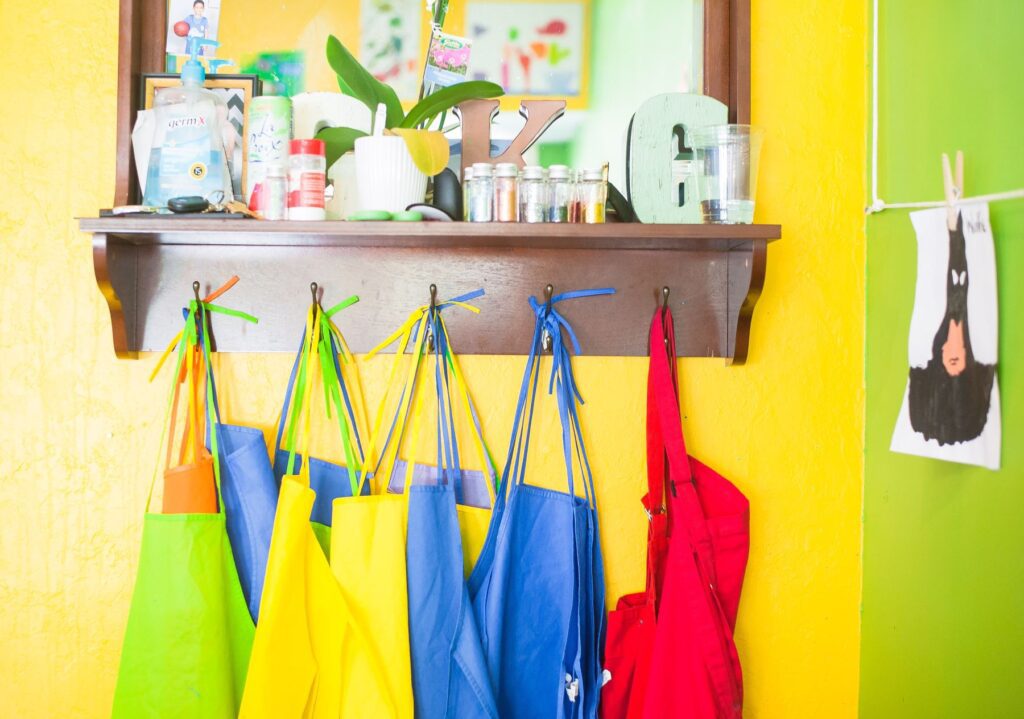Insights into inspirational arts practice in schools: Arts Explorers Programme


Project outline
Since the opening of the Royal Festival Hall for the Festival of Britain in 1951, a priority of Southbank Centre has been to provide inspiring arts education programmes. Arts Explorers is the organisation’s 3-year creative learning project working with six Lambeth primary schools with limited or no arts provision, following one class of children in each school from Year 4 to Year 6. Having launched in January 2019, the programme aims to build and develop school-wide creative learning over a three-year period, working in partnership with teachers, pupils, senior school leaders and families to explore cultural opportunities and build skills and confidence in the arts. Running in tandem with the school year, the creative learning team at Southbank has devised a multi-arts programme of artist-led workshops, in-depth projects, trips to special exhibitions and performances and regular teacher professional development sessions. Through this intensive programme, the Arts Explorer programme will:
- introduce and embed the arts into the school
- give the teachers the confidence and skills to teach arts subjects and have a creative approach in other subject areas
- encourage pupil leadership, confidence and creativity through the arts
- inspire a curiosity and love of arts in the children and their families
- empower the children’s families to take advantage of all the arts and culture London has to offer
- support the children who take part from each school (approximately 180 children) to achieve Arts Award Discover
- actively support the schools to work towards achieving Arts Mark
- demonstrate and advocate to other schools, arts organisations and education policy makers the value of the arts within schools to the whole school community.
Each year of the project takes a different focus. In year one, each Year 4 class and their participating teachers took part in a series of ‘explore days’. These days were led by artists and designed to inspire and excite both the teachers and children, introducing the school to how the arts can support learning, and highlight what Southbank Centre can offer.
In year two, commencing this September, the programme sees the class start Year 5, and as the teachers and students grow and develop, the project will continue to build teacher and pupil skills, leadership and confidence. Children will participate in in-depth projects in each of the art forms and will take on more of a leadership role with support from artists and Southbank Centre’s creative learning team. The ambition is that teachers and children will take more of a lead in creating and devising projects and will share their learning with the wider school.
In year three (2020/21), as children commence Year 6, the focus turns to families. After two years of arts activities with the pupils, the programme aims to extend the creative and cultural experience outside of school and introduce the children’s families to a range of artistic and cultural opportunities in London, supporting the pupils’ creative learning journey beyond the classroom as they progress to secondary school. This year responds to the fact that for several reasons – including the fact that new attainment measures such as EBacc and Progress 8 are steering the direction of teaching from the beginning of secondary school (Higher Education Policy Institute, 2017) alongside stricter timetabling and curriculum requirements – children’s engagement in the arts tends to drop off. Year three of this project therefore places importance on engaging families and giving parents the confidence and know-how to take advantage of all the arts and culture London has to offer.
As with all of the activities at Southbank Centre, long-term provision is subject to funding constraints and the demands at any given moment of multiple stakeholders. That said, the vision behind this pilot project is to better understand how we convert a child who comes to Southbank Centre with their school group to a child who visits with their family or independently over the course of the three-year project. We hope to learn from and build upon Art Explorers so as to create a longer-term arts education offer that encourages creative learning and cultural participation in inner-city primary schools.
Context
In the south London borough of Lambeth, there are 62 primary schools responsible for 23,841 pupils (Lambeth Education Statistics, 2018). Across the six primary schools participating in the Arts Explorers programme, the average number of pupils is 349 per school, with the smallest being a one-form entry school of 194 pupils (St Saviours Church of England Primary School in Herne Hill) and the largest a three-form entry school, with a total of 694 pupils (Hitherfield Primary School in Streatham) on its roll.
As this area of London changes and becomes more affluent, socio-economic differences are becoming starker. Lambeth primary schools tend to have higher numbers of students with additional barriers to learning than the national average, with as many as 60 per cent EAL students in some schools compared with the national average of 21.3 per cent as well as higher than average numbers of students with SEND requirements. The current average of students eligible for Pupil PremiumAdditional funding for publicly funded schools in England to is 24 per cent. Using Free School Meals (FSM) as a proxy indicator for deprivation, it can be noted that 21.2 per cent of all primary school students were registered for FSM in Lambeth (Lambeth Education Statistics, 2018), substantially higher than the 15.8 per cent national average (DfEDepartment for Education - a ministerial department responsi, 2019). 49.3 per cent of students are fluent in English alone, with Portuguese, Spanish, Somali, French, Polish, Arabic and Yoruba being some of the other languages spoken most fluently by students (Lambeth Education Statistics, 2018).
Each of the participating schools have been rated as either ‘good’ or ‘outstanding’ in their most recent OfstedThe Office for Standards in Education, Children’s Services reports, emphasising that there is no direct correlation between school excellence and pupil disadvantage. The biggest challenge facing these schools is one of funding, with Lambeth being the fifth most affected local authority in London, having had an estimated £25 million cut in their annual budget since 2017. This means, unfortunately, that access to the arts is often the first thing to disappear – especially for those pupils who have fewer opportunities to take part in the arts outside of school.
Evaluation of the first year
In order to effectively ensure its success, ongoing evaluation has been embedded in the project since its inception. Having an external evaluator has enabled detailed reflection and feedback from participating teachers during the first year, helping the Southbank team to develop an iterative approach to the structure and programming of Arts Explorers for the following year.
Last autumn, participating schools underwent an initial consultation period with Southbank so that the organisation might better understand the specific aims, needs and challenges of each school, helping to devise a programme of work that matched the goals and priorities for creative learning at each school. The first two terms of activity (spring and summer 2019) included participation in the Imagine Schools’ Writing Project with author Joseph Coehlo, a literacy initiative developed around the idea of a game of consequences where Coehlo’s imagined robotic characters, Tap and Switch, went on a journey determined by individual class groups. This culminated in each school’s story being published in book form as well as attendance at a reading session with Coehlo. Schools also took part in an all-day series of workshops with different musicians and professional music organisations affiliated with Southbank, as well as a visual arts day led by artists Daniel Wallace and Neequaye Dreph Dsane, the graffiti artist behind the well-known Michelle Obama mural on Brixton Road.
Regular CPD sessions for teachers led by artists and Southbank’s creative learning team have taken place before each explore day, with teachers participating in hands-on activities and discussion about how to implement creative learning using a particular artform in the classroom. These sessions have also introduced teachers to how each artform fits in with Southbank Centre’s creative programming more generally, providing a taster of the kinds of free events that pupils and families might attend beyond the scope of Arts Explorers. Teachers have also had the opportunity to train as Arts Award advisers, which will enable them to deliver the Award in their respective schools beyond the project end.
The project this year has been about developing a spirit of openness and fun in the children’s experiences of art and culture, using the resources of Southbank Centre (space, expertise, time and profile) as a means of inspiring children and their teachers to see what can be possible. The desired outcomes as listed at the beginning of this case study – from introducing and embedding the arts into schools to empowering children’s families to take advantage of London’s cultural offer – will emerge and evolve as the project develops over its three year period.
At the outset of Arts Explorers, the creative learning team agreed to evaluate its impact in four specific areas: the wider school curriculum, health and wellbeing, talent development (of both students and teachers) and cultural participation more broadly. The need to consider these impact areas remains, but high on the agenda this year has been the evaluation of processes rather than outcomes, which has involved reflecting upon Southbank’s capacity as an arts organisation to deliver the project to such a varied group of primary schools. Even the fact that some of the participating schools are one-form entry whilst others are three-form entry has proved logistically challenging for delivering the project in the same way to all involved. Some of the schools already have a more established music offer than others, meaning that the Arts Explorers programme might do well to prioritise the delivery of other art forms for those particular schools. It is therefore imperative to fine-tune the programme according to the specific context, curriculum and existing teacher skill set in each of the schools included in this project. In other words: there is no one-size-fits-all approach to delivering a project such as Arts Explorers, even over a relatively compact geographical location.
Initial responses to Arts Explorers suggest that support with creative learning is more important than ever in state primary schools. This is not to suggest that the role of arts organisations such as Southbank Centre should be to plug the growing gap in arts education. Rather, organisations such as Southbank are now playing the role of promoting new and more holistic approaches to creative learning in schools, which will hopefully travel outwards – from pupils to teachers and schools, and from families to the community – helping to empower people to produce and consume art and culture for themselves.
A blog about the project is available to visit online: https://artexplorers.wpengine.com
For more information about Arts Explorers, please contact: schools@southbankcentre.co.uk









